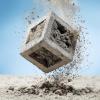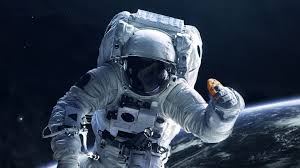
Breaking News
 Mike Rowe appears to be receiving flak for daring to explore the potential dangers of vaccines...
Mike Rowe appears to be receiving flak for daring to explore the potential dangers of vaccines...
 How to Keep Potatoes Fresh for a Year!
How to Keep Potatoes Fresh for a Year!
 A high school student has amazed the global science community with a discovery...
A high school student has amazed the global science community with a discovery...
Top Tech News
 The 6 Best LLM Tools To Run Models Locally
The 6 Best LLM Tools To Run Models Locally
 Testing My First Sodium-Ion Solar Battery
Testing My First Sodium-Ion Solar Battery
 A man once paralyzed from the waist down now stands on his own, not with machines or wires,...
A man once paralyzed from the waist down now stands on his own, not with machines or wires,...
 Review: Thumb-sized thermal camera turns your phone into a smart tool
Review: Thumb-sized thermal camera turns your phone into a smart tool
 Army To Bring Nuclear Microreactors To Its Bases By 2028
Army To Bring Nuclear Microreactors To Its Bases By 2028
 Nissan Says It's On Track For Solid-State Batteries That Double EV Range By 2028
Nissan Says It's On Track For Solid-State Batteries That Double EV Range By 2028
 Carbon based computers that run on iron
Carbon based computers that run on iron
 Russia flies strategic cruise missile propelled by a nuclear engine
Russia flies strategic cruise missile propelled by a nuclear engine
 100% Free AC & Heat from SOLAR! Airspool Mini Split AC from Santan Solar | Unboxing & Install
100% Free AC & Heat from SOLAR! Airspool Mini Split AC from Santan Solar | Unboxing & Install
 Engineers Discovered the Spectacular Secret to Making 17x Stronger Cement
Engineers Discovered the Spectacular Secret to Making 17x Stronger Cement
Astronauts Are Growing Microbes in Space to Help Us Mine Asteroids

If humans ever want to establish a base on the Moon, Mars, or in deep space, they may need to mine local rocks to support themselves. Now a team of scientists is taking a first step toward finding out whether rock-chowing bacteria can lend a hand.
On Tuesday, astronauts on the International Space Station fired up a series of miniaturized reactors that'll allow them to grow specialized bacteria capable of extracting resources from rocks here on Earth. The experiment, called Biorock, seeks to learn whether the microbes' abilities are altered in low gravity conditions—and ultimately, whether these tiny miners can help support a future off-Earth base.
On Earth, microbes are already used in so-called "biomining" applications; helping humans to extract metals like copper, iron, and gold from rocks or mining waste.

 Wall Street wants to go 24/7
Wall Street wants to go 24/7

